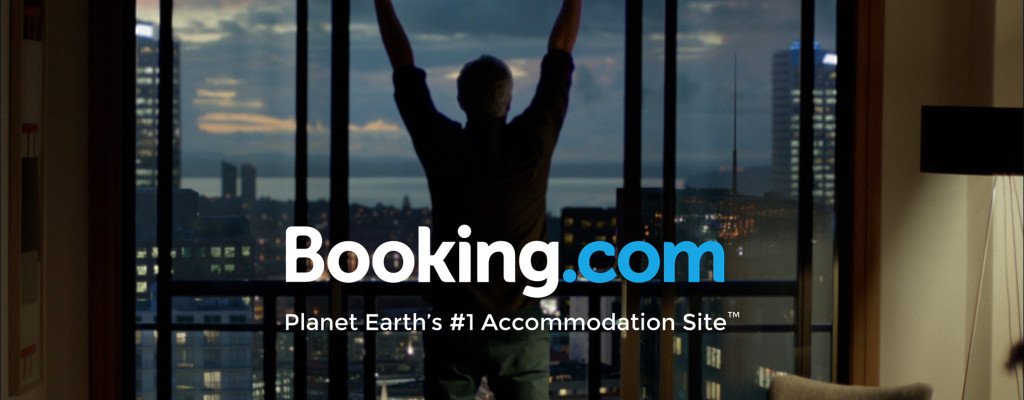Editor’s note: This is a sponsored article, which means it’s independently written by our editorial team but financially supported by another organisation, in this case, OSCON.
If you would like to learn more about sponsored posts on tech.eu, read this and contact us if you’re interested in partnering with us.
As part of tech.eu’s ongoing series on OSCON, the open source conference taking place in Amsterdam between October 26 and 27, we are chatting with several speakers who will be presenting their talks and tutorials over the three days. Today we checked in with Amsterdam resident Stuart Frisby, Principal Designer at Booking.com, who will be discussing AB testing in his talk A/B testing: Test your own hypotheses, and prepare to be wrong on Tuesday the 27th.
First off, what do you do at Booking.com?
I am the Principal Designer at Booking.com, which involves working across our full range of products along with the other designers in the team to work on stuff which we hope will make the website better for our customers. Most recently I was working on Booking Now, which is our Last Minute app on Android and iOS, but my background is in web design.
You’ll be talking about A/B testing at OSCON. Can you tell us a little more about what your talk will be covering?
I wrote a blog post a little why ago which lamented this rise I see in our industry of people being curious about - or really strongly advocating for - a data-driven approach to product development. Which is fantastic, and having worked that way for almost five years I can’t imagine not having data as a tool to facilitate great design. But what has come with the proliferation of A/B testing proponents is this idea that what users want and need is universal, which I know is not true. So I want to explore a little bit in my presentation about why we do A/B testing, and when it is and isn’t useful.
What makes A/B testing important now more than ever and what kind of impact can it have on development and decision-making?
I think that as we’ve matured as an industry, we’ve gone from being this bunch of nerds who know all the answers, to the people who can facilitate asking the right questions. And that’s what A/B testing is all about – asking good questions, and being diligent about finding an accurate answer.
It means that as individuals, we can see the extent of our impact on a business, and as a business, we can, for the first time, attach a real bottom-line value to our teams of designers and developers when it comes to product teams. That’s pretty powerful, and it makes us accountable in a way that I don’t think we were ten years ago.
What I see happening in a data-driven product development organisation is the democratisation of decision-making, and a very tangible point of contact between the people building a product, and the people using it. I find that terrifically exciting and I think that done well, it serves the craftspeople, the business, and the end customer.
Why should delegates at OSCON check out your talk?
Anyone wrestling with the role of data in product development should find something interesting to take from my presentation, and anyone curious about Booking.com should also come along, I’ll talk about theory and my own reflection, but of course my experience in the last five years is very directly tied to Booking.com.
Perhaps it’s good for me to give a sense of who we are: We’re a Dutch-founded, American-owned company, with over 10,000 employees, 120 offices around the world, and products in 41 languages across all of the major platforms. Solving problems at that scale is super interesting, and that is the foundation of my talk. I’m not sure many companies have the kind of scale and breadth of A/B testing that we do, and we’re a prominent example of this kind of product development done well.
Have you spoken at or attended OSCON before?
I haven’t. I typically attend more design-driven conferences in order to try and keep up with the scary pace of change in the industry, but having spoken to a number of my colleagues at Booking.com who have attended, I am expecting a really impressive roster of speakers and attendees, and it helps that my apartment is about 300 metres from the conference venue.
In your view, what makes a conference like this important for those working with open source?
To me a good conference is always about two things – the first being about taking a collective pulse-check of our industry, and calibrating our thinking around the big challenges and opportunities which we’re all thinking about back in our offices on a daily basis.
The other thing is meeting and reacquainting oneself with the other attendees. The hallway conversations and bar-talk are a key part of the conference experience for me, and I’m looking forward to getting to know some of the folks at OSCON, and catching up with some old friends, too.
Keep reading:
OSCON: Live coding with Sonic Pi creator Sam Aaron
Mobile bookings on Booking.com nearly tripled to $8 billion in 2013




Would you like to write the first comment?
Login to post comments